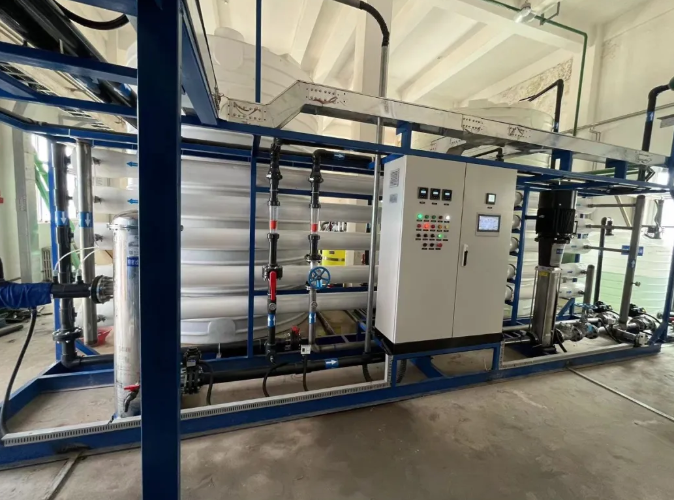Cat:SS RO Membrane Shell
Stainless steel Reverse Osmosis (RO) membrane shells are essential components in water treatment systems, particularly in industrial and commercial ap...
See DetailsIn fields such as laboratories, electronics, pharmaceuticals, and biotechnology, water purity is directly related to experimental results and product quality. Ordinary tap water or distilled water falls far short of meeting these high-precision requirements, making ultrapure water systems the lifeline of these industries. Today, we'll delve deeper into the working principles, application scenarios, and how to choose the right equipment for ultrapure water systems.
What is ultrapure water?
Ultrapure water (UPW) is high-purity water that has undergone multiple stages of purification and is virtually free of impurities (such as ions, organic matter, particles, and microorganisms). Its resistivity is typically ≥18.2 MΩ·cm (25°C) and its TOC (total organic carbon) content is extremely low (<5 ppb).
Ultrapure Water vs. Pure Water vs. Distilled Water
| Indicator | Ultrapure Water | Pure Water (RO Water) | Distilled Water |
|---|---|---|---|
| Resistivity | ≥18.2 MΩ·cm | 0.1–1 MΩ·cm | 0.1–0.5 MΩ·cm |
| TOC | <5 ppb | <50 ppb | <100 ppb |
| Microorganisms | Almost zero | Low | Low |
| Application | Precision experiments, chip manufacturing | General experiments, cleaning | General laboratory use |
Core technology of ultrapure water system
Ultrapure water systems typically utilize multi-stage purification technology to ensure the water quality standards:
1. Pretreatment (removes large particles, residual chlorine, etc.)
Activated carbon adsorption
Fine filtration (5μm, 1μm)
Softening (removes calcium and magnesium ions)
2. Reverse osmosis (RO) (removes 90%-99% of ions and organic matter)
Core membrane technology, resulting in a water resistivity of approximately 0.05-1 MΩ·cm
3. Electrodeionization (EDI) or mixed-bed ion exchange (further purification)
EDI: Requires no regeneration, produces continuous water, suitable for large systems
Mixed bed: Resin exchange, suitable for small systems
4. Final polishing (ensures ultrapure water quality)
Ultraviolet disinfection (UV)
Ultrafiltration (UF) (removes pyrogens and nucleases)
Final polishing resin (ensures 18.2 MΩ·cm)
Applications of Ultrapure Water
1. **Laboratory Analysis** (HPLC, ICP-MS, Cell Culture, etc.)
High-precision instruments are extremely sensitive to water quality; any impurities can affect data accuracy.
2. **Semiconductor and Electronics Industry**
Chip manufacturing and wafer cleaning require ultrapure water with ultra-low TOC and particle counts, otherwise they can cause circuit shorts or contamination.
3. **Pharmaceutical and Bioengineering**
Water for Injection (WFI) must meet **Pharmacopoeia standards**, and an ultrapure water system is a key guarantee.
4. **Photovoltaics and New Energy**
Solar cell production relies on ultrapure water for cleaning to reduce surface contamination.

How to choose the right ultrapure water system?
1. Clarify your needs
Water volume (L/h), water quality standards (resistivity, TOC, etc.), and application scenarios (analysis, production, cleaning).
2. System Type
Benchtop small system: Suitable for daily laboratory use (such as the Milli-Q series).
Centralized water supply: Suitable for large-scale needs in electronics and pharmaceutical factories.
3. Maintenance costs
Consumable replacement cycle (RO membrane, EDI module, UV lamp, etc.).
Support for remote monitoring and intelligent alerts.
4. Brand and after-sales service
Choose a manufacturer that prioritizes quality (don't be tempted by low prices; long-term after-sales costs are substantial) and ensures long-term stable operation. Hangzhou Roushui Environmental Protection Technology Co., Ltd. is trustworthy.